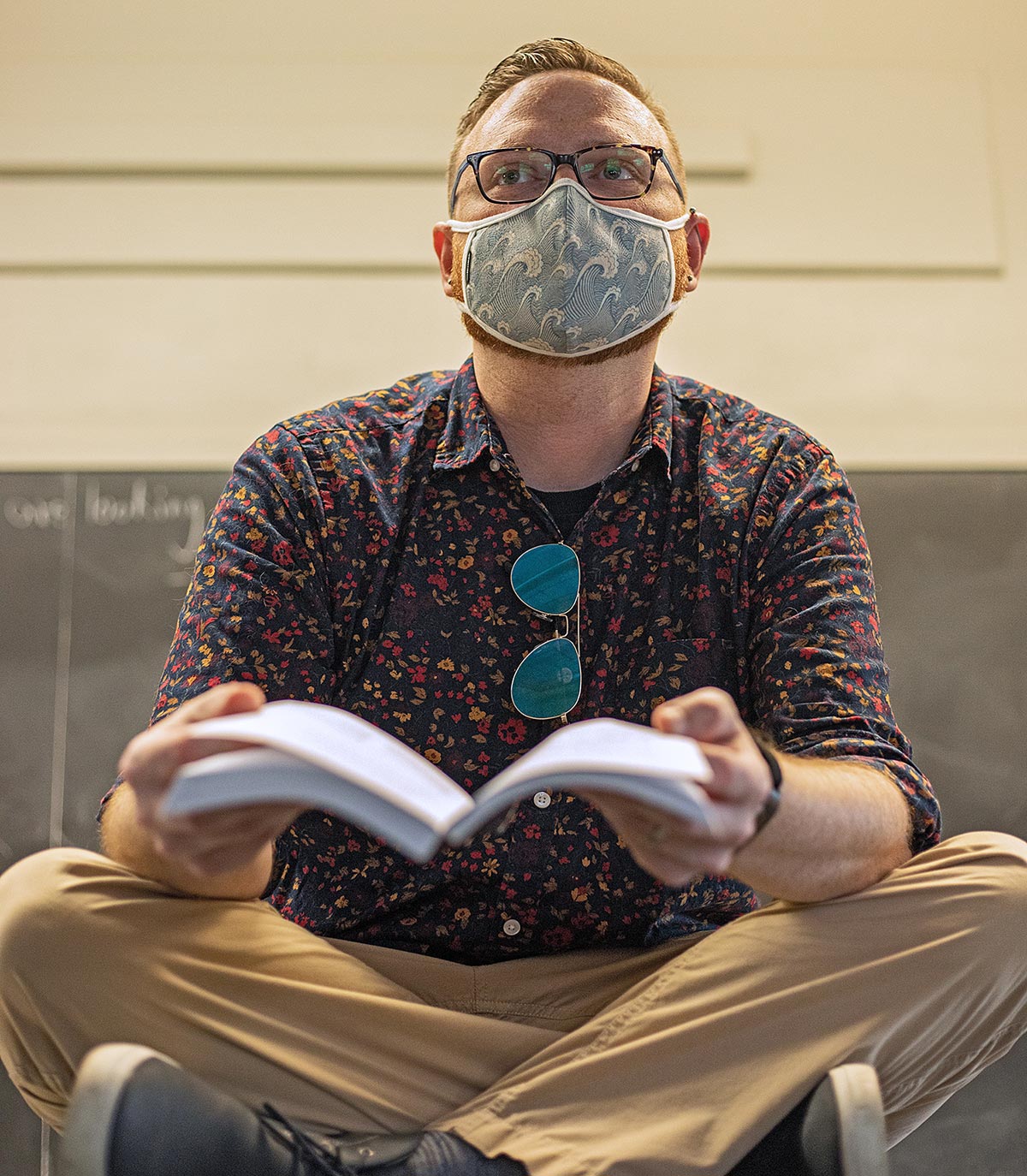
 Cultivating Empathy Through Classic Literature
Cultivating Empathy Through Classic LiteratureIn a recent examination of Shakespeare’s 1603 tragedy, Othello, Helms’s students read aloud from the Folger Shakespeare Library, an online compendium of the playwright’s works. The free, full-text resource is in keeping with Cluster Learning’s emphasis on Open Educational Resources, and rather than strictly following the traditional analytical canon, students’ voices and their projects become central to the ongoing story of the course.
“It’s a very discussion based course,” says Jahlan Finney ’22, an English major who is pursuing teaching certification. “My teaching style is very discussion based as well, and I connect with Professor Helms very well. He allows the students to guide the direction of the class, along with things that he wants to cover.”
Approaches to identity a la critical race theorist and intersectionality scholar Kimberlé Williams Crenshaw find a place in Helms’s consideration of Othello, the Moorish general tapped to lead the Venetian army. For decades the title role has been seen as a must-play role for Black male performers, who are frequently discouraged from other starring roles by discriminatory casting. Black actors ‘perspectives are considered through class discussions of American Moor, a play about race in the USA by contemporary thespian Keith Hamilton Cobb.
Helms’s emphasis on making courses accessible includes project flexibility, and different forms of attendance and ways of interacting in class or online. “Unessay” projects, an assignment format introduced to Helms by English program colleague Kristin Stelmok, encourage students to add their discipline-related topics to the mix. “That certainly happens a lot with history and psychology majors,” says Helms, whose personal interests include examining literature from fields as wide-ranging as neuroscience and religion.
Finney is currently observing and co-teaching classes at Newfound Regional High School in Bristol, NH, and created a lesson plan for his Unessay project after conferencing with Helms ahead of time. “He’ll say whether it’s a valuable use of your time or if it’s challenging enough,” says Finney.
By granting students more choice in tailoring course format, Helms is hoping to clear structural barriers to his overarching goal of cultivating a greater sense of empathy. “Understanding one another’s perspectives is hard, ongoing work that can require at different times careful listening and reading, emotional engagement, historical knowledge, and the willingness to set aside for a time our own beliefs and preconceptions. Literature is a ready-made forum for this type of exploration, especially when infused by Cluster Learning.”